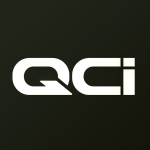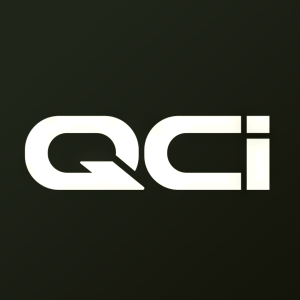Welcome to our dedicated page for Quantum Computing news (Ticker: QUBT), a resource for investors and traders seeking the latest updates and insights on Quantum Computing stock.
Quantum Computing Inc (NASDAQ: QUBT) delivers cutting-edge solutions at the intersection of quantum physics and artificial intelligence. This dedicated news hub provides investors and technology professionals with essential updates about the company's advancements in quantum optimization, photonic chip manufacturing, and cybersecurity innovations.
Access real-time announcements including earnings reports, product launches like the Dirac-3 system, and strategic collaborations with research institutions. Our curated collection ensures you stay informed about developments in quantum-enabled financial software, TFLN photonic components, and government-sector applications.
Key updates cover operational milestones, technology patents, and market expansion initiatives while adhering to financial disclosure standards. Bookmark this page for direct access to primary source materials that influence investment decisions and industry trends in quantum computing.
Quantum Computing Inc. (Nasdaq: QUBT) confirmed the appointment of Dr. Yuping Huang as Chief Executive Officer, effective January 1, 2026, after serving as Interim CEO since April 11, 2025. Dr. Huang brings over 20 years in quantum physics and led research programs totaling approximately $40M in funding from U.S. agencies and partners.
The company said the leadership change aligns with its ten-year technology roadmap as QCi shifts from prototype and small-batch manufacturing toward industrial-scale production, with plans to refine engineering, expand Fab 1 operations, and lay foundations for Fab 2. QCi emphasizes room-temperature, low-power integrated photonics devices for research, government, and commercial markets.
Quantum Computing Inc (Nasdaq: QUBT) signed a Stock Purchase Agreement to acquire Luminar Semiconductor, Inc. (LSI) from Luminar Technologies (Nasdaq: LAZR) for $110 million in cash, subject to customary adjustments.
The acquisition adds LSI's photonic components, patents, and engineering team to QCi to strengthen its supply chain, increase engineering depth, and accelerate development of compact, integrated quantum systems. QCi will act as the proposed stalking horse bidder in Luminar's Chapter 11 Section 363 sale process; LSI is not a debtor and is operating in the ordinary course.
Closing is subject to customary conditions and bankruptcy court approval, which the parties expect by end of January 2026.
Luminar (NASDAQ: LAZR) agreed to sell its subsidiary Luminar Semiconductor (LSI) to Quantum Computing Inc. (QCi) for $110 million in an all-cash transaction.
LSI will remain operational and is not a debtor in Luminar’s voluntary Chapter 11 cases; the sale requires bankruptcy-court approval under a Section 363 process expected by end of January 2026, subject to customary closing conditions. QCi said it will invest to scale LSI and accelerate its quantum photonics roadmap.
Quantum Computing Inc (Nasdaq: QUBT) will debut live demonstrations at CES Foundry in Las Vegas during CES 2026 (Jan 6–9), with CES Foundry open Jan 7–8.
QCi will present hands-on quantum photonics demos at Booth FT 16 showing route optimization, AI training acceleration, and financial-model exploration to illustrate real-world decision improvements. The company highlights U.S. manufacturability via a thin film lithium niobate foundry in Tempe, Arizona supporting a 150 mm wafer line.
Quantum Computing Inc (Nasdaq: QUBT) will debut live demos of its quantum photonics systems at CES 2026 in Las Vegas, running Jan. 6–9, 2026, with CES Foundry sessions on Jan. 7–8 at the Fontainebleau Las Vegas.
QCi plans hands-on demonstrations at Booth FT 16 showing applications in route optimization, AI training acceleration, and financial modeling, and highlights U.S. manufacturability via a thin film lithium niobate foundry in Tempe, Arizona supporting a 150 mm wafer line.
Quantum Computing Inc (Nasdaq: QUBT) announced an oversubscribed private placement of 26,867,276 shares priced at market to raise approximately $500 million gross. The company said the offering includes participation by several large existing shareholders and a first-time investment from a global alternative asset manager. The closing is expected on or about September 24, 2025, subject to customary conditions. The company intends to use net proceeds for commercialization, strategic acquisitions, sales and engineering hires, working capital, and general corporate purposes. The securities have not been registered under the Securities Act; the company agreed to file a resale registration statement. The company reported total gross capital raised since November 2024 of approximately $900 million and an expected post-close cash position of about $850 million.
Quantum Computing Inc. (Nasdaq: QUBT) announced participation at the UBS Global Technology and AI Conference in Scottsdale, Arizona on December 1-4, 2025. Interim CEO Dr. Yuping Huang will join a Quantum Computing Panel on December 1, 2025 at 2:55 PM MT hosted by UBS analyst Madeleine Jenkins. CFO Chris Roberts and Dr. Huang will be available for one-on-one meetings on December 1 and 2, 2025.
The announcement lists speakers, panel time, and investor meeting availability for shareholders and analysts ahead of the conference.
Quantum Computing Inc (Nasdaq: QUBT) will unveil Neurawave, a photonics-based reservoir computing system, at SuperCompute25 in St. Louis, November 18–20, 2025. Neurawave is a PCIe-based, room-temperature photonic platform designed for integration with existing computing infrastructure and aimed at edge-AI use cases such as signal processing, time-series forecasting, and pattern recognition.
The company will show Neurawave at Booth #4344 and offer on-cloud demonstrations of its Dirac-3 quantum computer, emphasizing deployable, scalable photonic solutions for high-performance and energy-efficient applications.
Quantum Computing Inc. (Nasdaq: QUBT) reported third quarter 2025 results on November 14, 2025, showing accelerating commercial traction and a fortified balance sheet.
Key figures: Q3 revenue $384k (up ~280% YoY), gross margin 33%, net income $2.4M ($0.01 basic), and operating expenses $10.5M. Cash and cash equivalents were $352.4M with investments of $460.6M, and the company raised $500M in Q3 plus an additional $750M after quarter end, giving >$1.5B liquidity.
Operational highlights include a first U.S. commercial sale of quantum cybersecurity to a top-5 bank, ongoing NASA collaboration using Dirac-3 for LiDAR noise removal, Fab 1 small-batch TFLN production in Tempe, and hiring to support scale.
POET (NASDAQ: POET) and Quantum Computing Inc (NASDAQ: QUBT) announced a strategic collaboration to co-develop 400G/Lane TFLN modulator-based 3.2Tbps optical engines for CPO and next‑gen AI connectivity.
POET will fund development targeted for completion in H2 2026. The design pairs QCi's TFLN modulators with the POET Optical Interposer platform and aims to double current network lane speeds. The global market for 3.2T pluggable and CPO formats is projected near $12 billion by 2030.


